‘I readjusted my moral compass’: Cari Champion on finding her voice
Jan 12, 2021
6 mins
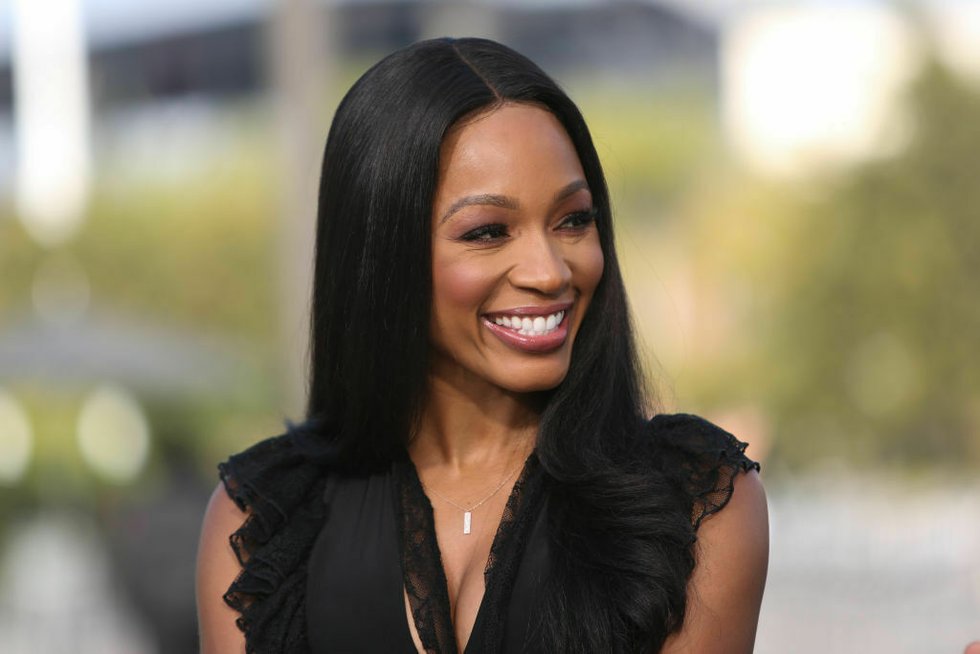

Journalist
As a broadcast sports journalist who hosted flagship TV shows on US sports network ESPN, Cari Champion often stood out as the lone woman—and often the only black person—behind the desk. In 2020, after almost eight years at the network, she quit. Now, advocacy for racial and gender equality is at the center of her work.
“I realized that there’s more power in me speaking out instead of just going along with the grain,” she said of her career shift. “It’s not an easy thing to do, to put yourself on the frontline and to be bold, but the more that I can be honest, the more I know that I am doing the right thing.”
Champion, 45, who lives in Los Angeles, now runs the Brown Girls Dream Foundation and hosts The Brownprint Podcast, both dedicated to creating space for women of color and other marginalized people, in the professional world. She also hosts shows on Vice TV and the US network TNT that discuss social issues and race in America. Here, she talks authenticity, speaking out, and knowing her worth.
“My goal is to think about the marathon, not just the one particular race that I’m running that day.”
You’re a successful sports journalist, a host, and a podcaster and you run a nonprofit foundation. How do you handle all the work?
When the pandemic hit I thought there wouldn’t be much work, but it’s been just the opposite. One, I have a good assistant—I’m not organized but I try to keep people around me who are very organized. And, two, I’m really dedicated to what I’m doing. I don’t take projects just for the money or because it looks good. So it doesn’t feel like I am super busy, even if it is a lot of work.
My goal is to think about the marathon, not just the one particular race that I’m running that day.
Has finding meaning in your work always been important to you?
Yeah, when I was a kid, I knew that I wanted to use my voice to help people, but I didn’t know what it would look like. As I got older, I started to find my voice by speaking for those who couldn’t always speak for themselves or weren’t able to find the words to say. It was refreshing to do that for four years as a local broadcast journalist.
Then, along the way, I lost track. Before the pandemic and before this summer of racial reckoning, I readjusted my moral compass and I knew that I had to go back to doing things that fulfilled me. You can sit at the desk and make a lot of money and be popular and be famous, but none of that was why I wanted to do it. Realizing that gave me purpose and allowed me to choose my platform, and that’s what I did when I left ESPN.
What has the process of finding your voice as an advocate been like for you?
“…me just sitting at a desk with a bunch of men talking about sports was a revolutionary act in itself.”
Finding your voice is just a matter of talking and sharing what you care about, and what you love, and your experiences. When I went into sports, I remember feeling very isolated and unheard because it was so male dominated. I felt lost and overwhelmed by my surroundings, and all the numbers, plays, and stats. But the more I started to hear from other black and brown women about their experiences, I realized that me just sitting at a desk with a bunch of men talking sports was a revolutionary act in itself, even if I was just there moderating.
I started to get my power from other women who encouraged me, and it changed my entire perspective.
You’re very honest and specific in ways that other people might tiptoe around, particularly when talking about race. How do you combine saying what you want to say honestly with your professional life?
I struggle with this daily. There was a time when I was very careful about the words that I used because I didn’t want to upset anybody or to be perceived a certain way. Then one day I thought, I’m fed up, I’m tired. I’m exhausted, I’m hurt. I’m all of the things black and brown women feel and marginalized people feel.
When people like myself speak up using their platforms, the pushback isn’t because we are racist or radical, the pushback is because the power shift is changing.
“It took me working at the largest sports network for almost eight years to be able to say, ‘Okay, I can do that now.’”
What advice would you give to those who also want to advocate for causes they believe in professional spaces but are walking a line with how honest they can be and potential repercussions?
That is so incredibly difficult to answer. It’s an individual choice for every single person. My advice is to just put your toe in the water. Just try it. You don’t have to go full throttle because you don’t want to lose your job. And if you like the temperature, then keep doing it inch by inch.
It took me working at the largest sports network for almost eight years to be able to say, ‘Okay, I can do that now.’
In your podcast The Brownprint, inspirational guests share how they made it even if the odds might have been stacked against them. Where did the idea come from?
This podcast is about everyone who decided not to fit in and found power in their differences and found success in their otherness. As a result, they’ve been able to encourage other people to embrace their otherness in a mainstream way.
For example, my friend, Bozoma Saint John is the CMO [chief marketing officer] of Netflix, and she’s an immigrant. Can you imagine an awkwardly tall, really dark, young African girl going to school in Denver, of all places? Her mother was very, very dedicated to making sure that she was proud of who she was. To me, that is wholly unusual as an African American. If anything, I remember going to school trying to fit in because I went to school with a bunch of kids who weren’t black.
Bozoma is the CMO of Netflix, but she is still herself. Her otherness is her key; it’s why she’s so successful, so smart, and why she sees things differently. You don’t even have to be brown or black to get it. You could be someone sitting at home of any color, but the podcast should encourage you. You should walk away feeling, “I need to tackle my day.”
Is there a benefit of putting the Brownprint out as a podcast as opposed to another medium?
Yes. People are much more honest, fun, and willing to say what they feel in a podcast because it’s a more relaxed environment than TV.
TV makes people feel like they have to look a certain way, sit a certain way, talk a certain way. I love the podcast format because it’s really relaxed. That makes people feel more comfortable sharing.
You’ve said that knowing your worth, as a black woman in your industry, is something that you work on to this day. Where are you in the process? And what does working on that look like?
“…I’m really not asking for them to reinvent the wheel. It’s, just, treat me like my male colleague would be treated…”
It’s hard. I think my struggle is that knowing your worth isn’t necessarily about asking for a certain amount of money, it’s also asking to be treated fairly.
Every single time I go to work, before I demand anything, I know it’s going to look bad for me as a black woman. I hate that I’m even having that internal conversation because I’m not asking them to reinvent the wheel. It’s, just, treat me like my male colleague would be treated or give me the same level of respect you would give him. But I feel like they’re going to think I’m a diva, or I’m being a pain in the ass, or I’m an angry woman if I’m not smiling enough.
I feel like I’m constantly being judged. And some of that could just be me. Other people may not be feeling any of those things. But it’s a struggle that I have internally.
Now, don’t get me wrong. I definitely ask for my worth. I may say very competently that I know I need a teleprompter or I’d like to know what we’re doing to execute a proper job. But trust me, after I say it, I’m mulling it over in my head for about 10 minutes wondering, was I too aggressive? Was that too bossy? It’s an internal process every time. I’m constantly trying to reconcile how I should say things. It’s exhausting. And it shouldn’t be that way.
What does success mean for you looking to the future? What are your goals for 2021?
I have a lot of projects already lined up. I have work doing the Olympics, which is going to be amazing because it’s the pinnacle of sports, and I’m launching a new podcast about vulnerability.
But for me right now, my next level of success is going to be really marrying my personal and professional, being authentic to myself and using my voice by sharing and being vulnerable, and encouraging others to do the same. That may not yield money, but I think the results will be amazing if I can continue to be open and honest and share as an advocate. I feel like I’ll be able to break through another level of achievement that I have always wanted in this business.
Then I want to get to a place where I’m not having that internal conversation about worth, I’m just doing it effortlessly. My goal for 2021 would be for me not to battle in my mind about my worth; just really executing it, knowing it, living in it, embracing it. No more conversations about it, just stepping into my worth. That’s what I would love for 2021.
Photo: Paul Archuleta/Getty Images
Follow Welcome to the Jungle on Facebook, LinkedIn, and Instagram, and subscribe to our newsletter to get our latest articles every day!

More inspiration: Inspiring profiles
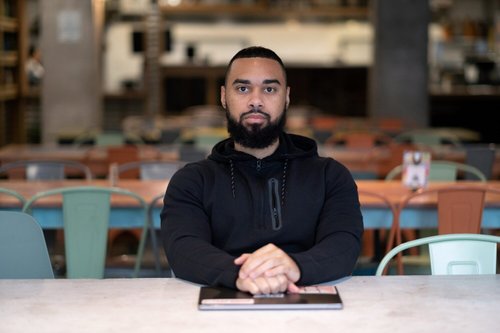
Be real, get ahead: The power of authenticity in your career
Pabel Martinez shares insights on how to allow yourself to be yourself, find your voice, and deconstruct stereotypes at work.
Apr 25, 2024
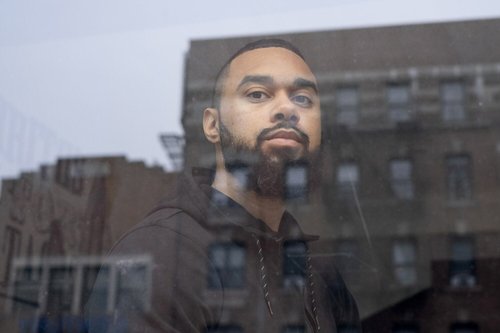
The professionalism paradox: Navigating bias and authenticity with Pabel Martinez
Pabel Martinez challenges the conventional norms of professionalism by unraveling the complexities of workplace discrimination.
Mar 11, 2024
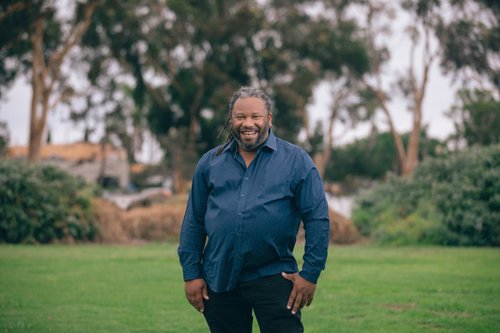
How play can make you happy, creative and productive at work
Work-life balance usually means separating work and play, but it might be a better marriage than you think...
Nov 07, 2023
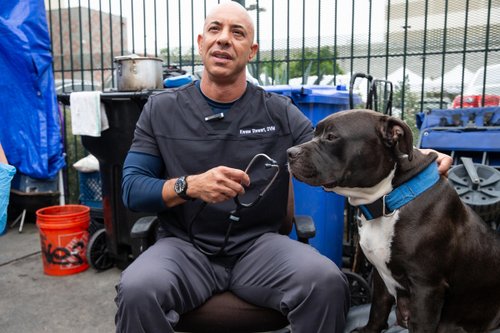
Project Street Vet: Caring for the unseen paws of Skid Row
Providing vet-to-pet care in some of California's largest homeless communities, Dr. Kwane Stewart shares the ups and downs of his remarkable work.
Aug 29, 2023
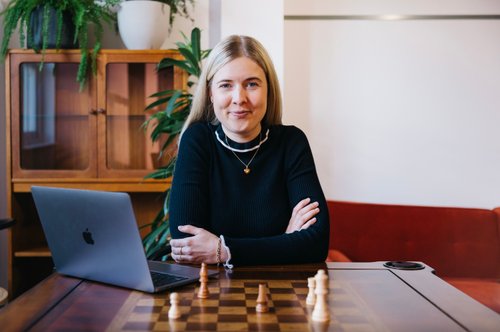
Girls learn how to have fun – and funds – by investing
A Danish trio is fighting gender inequality... on the stock market. We had a chat with one of the co-authors of the book Girls Just wanna Have Funds
Jan 30, 2023
The newsletter that does the job
Want to keep up with the latest articles? Twice a week you can receive stories, jobs, and tips in your inbox.

Looking for your next job?
Over 200,000 people have found a job with Welcome to the Jungle.
Explore jobs